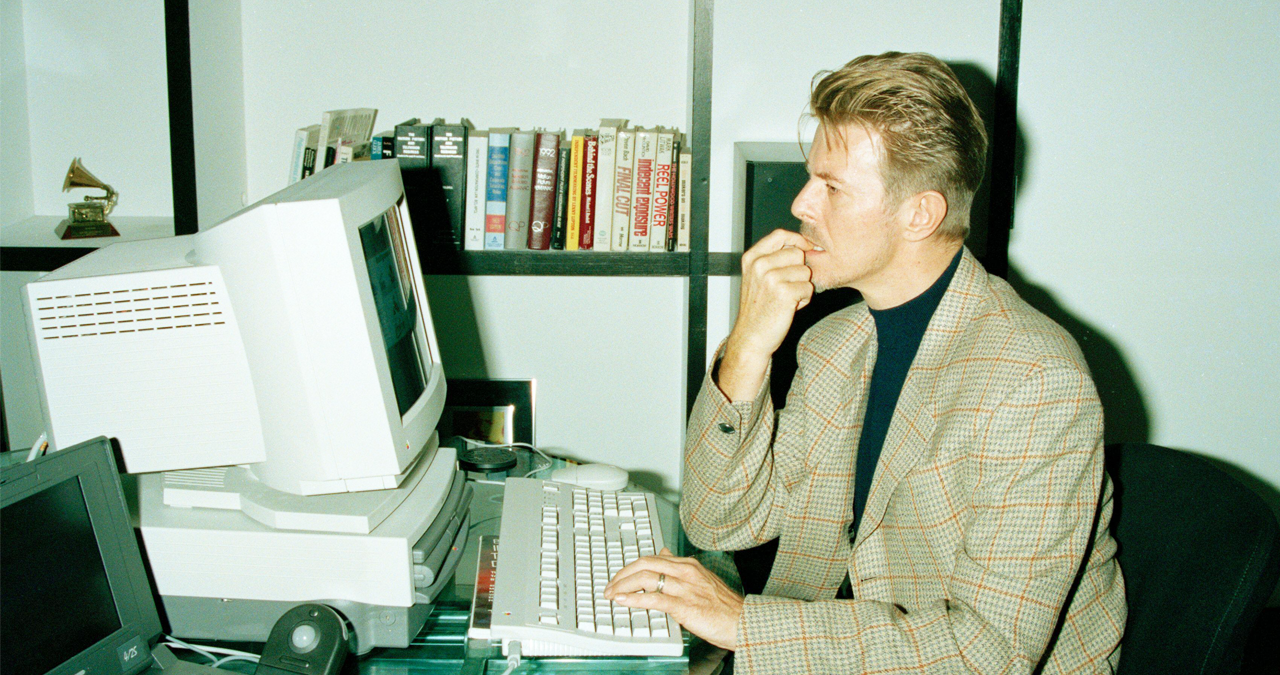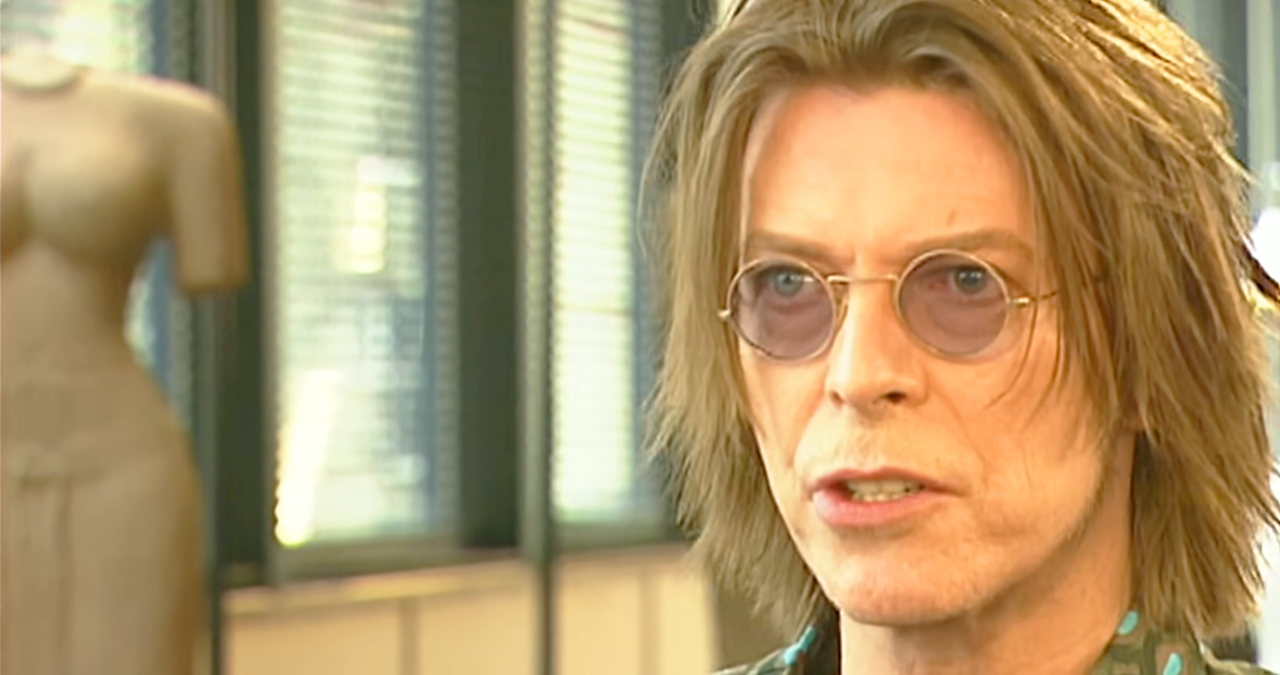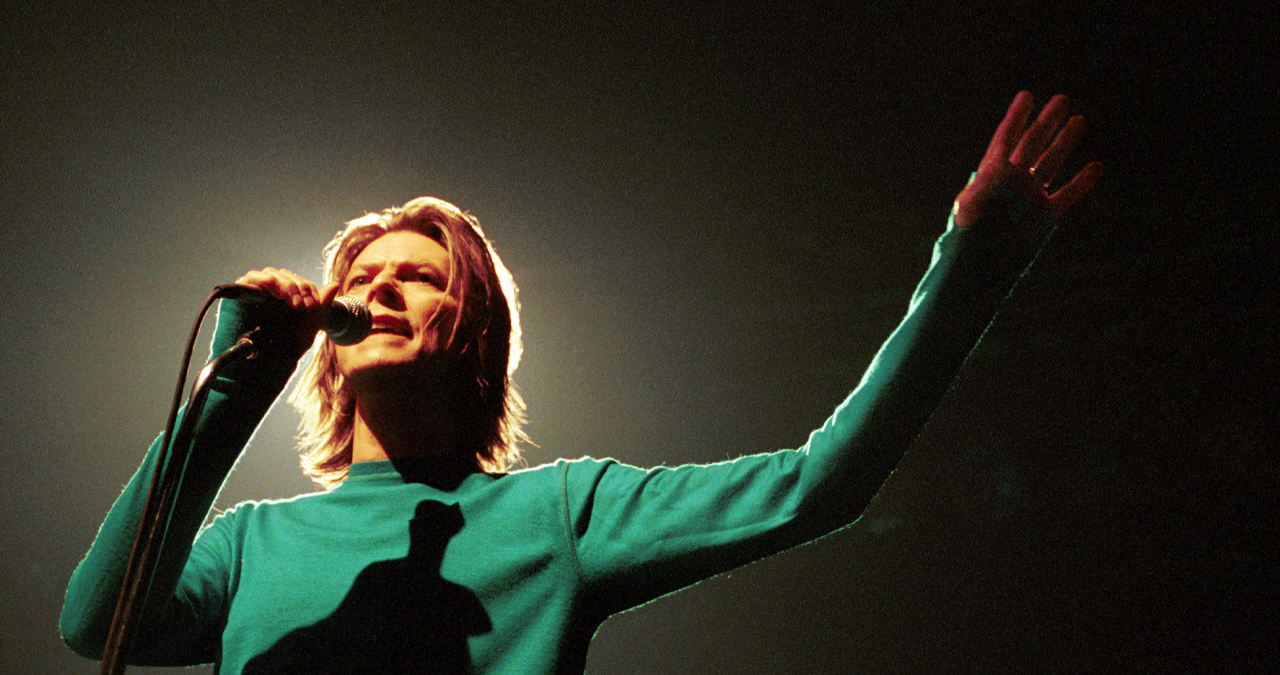“I think we’re on the cusp of something exhilarating and terrifying”: When David Bowie predicted how the internet would change the state of music and content forever
Bowie’s staggeringly prophetic 1999 Newsnight interview revealed his astute awareness of how the internet was on the verge of irreparably changing popular culture

Want all the hottest music and gear news, reviews, deals, features and more, direct to your inbox? Sign up here.
You are now subscribed
Your newsletter sign-up was successful
Across his storied career, David Bowie’s surprising left-turns and radical spirit of invention have, in hindsight, often been regarded as ahead of the curve.
Whether it was prefiguring synth-pop’s dominance in the 1980s with his late '70s 'Berlin trilogy', or when his stint inhabiting the role of alien messiah Ziggy Stardust was later treated as year zero for the UK’s New Romantic movement, who adorned themselves in similar garb, David Bowie had made an enviable living by anticipating what was coming next.
In many of these cases, however, Bowie wasn’t just an antenna for hypothetical future musical trends, but the direct instigator.
Aside from his prescience in both musical and stylistic terms, Bowie was an ardent tech-geek, and uber-keen on getting his hands on the instruments and devices of tomorrow. But, by the mid 1990s, Bowie had settled on one primary obsession.
This gradually developing technology had had its official 'birth' in the previous decade and, by the 1990s, was beginning to creep into everyday life, smuggled into homes as part of the desktop computer boom.
We're talking of course about that invisible thing that powers pretty much every facet of 21st century life - the internet.
By the end of the 20th century, Bowie was something of a go-to expert on this still dial-up dependent medium, particularly when the dubious old guard of broadcast news needed some insight.
From what this writer remembers, British news reportage on internet-related matters, video games, mobile phones - and anything vaguely cutting-edge during this period - was marked by an attitude that at most generous was thoroughly cynical, and at worst outwardly hostile.
Scoffs were made in particular at the idea of the internet expanding further onwards to the point where it would start to affect the lives, jobs and entertainment pursuits of average, everyday people.
No, these things were the pursuit of socially-awkward anoraks, bespectacled shut-ins… and rock stars with too much money and time on their hands.

But while the BBC's Newsnight programme's legendarily sardonic Jeremy Paxman might have felt that Bowie, during a now-iconic interview in 1999, was clearly getting carried away with an overly enthused, sci-fi-esque vision of techno-disruption, time has proven Bowie to have been, if anything, underselling it.
Yes, in this incredible interview, Bowie was absolutely bang-on the money when he spelled out a premonition of how the internet would (once its speed and the uptake from the general population increased) change the world.
In particular, Bowie could see how music’s already-fragmented state would further drift outwards towards a siloed world of disconnected subgenres and subcultures.
The full interview is just 16 minutes long, but in our opinion, it’s one of the greatest that Bowie ever gave.
It touches on everything from his own personal fear of performing, the reasons why he felt the need to re-invent himself so frequently, the drive behind developing characters and his own personal health at that moment in time.
Want all the hottest music and gear news, reviews, deals, features and more, direct to your inbox? Sign up here.
But the real meat of the interview is where Bowie plays soothsayer. It stems from David recounting how rock ’n’ roll seemed dangerous and revolutionary to him as a budding young artist, and Bowie stated that, if he was coming of age now [in 1999], he’d almost certainly settle for being a collector and fan of records.
The reason being, that the power of being a famous musician had diminished entirely because of the fractured culture of the late 1990s.
This talk of fragmentation naturally led Bowie on to speaking about his favourite topic at the time, the web.

As one of the earliest high-profile adopters, Bowie had ran the subscription-based BowieNet (again, a prescient move) which gave Bowie direct access to his fans, dropping in to chat via Q&As and occasionally in its forums. He even encouraged fans to create their own websites hosted under BowieNet's domain. This was way before MySpace, we might add.
He was also responsible for releasing the first ever downloadable single (1996’s perplexing but catchy Telling Lies). Adjacent to the internet, Bowie had starred in (and soundtracked) the impressive Quantic Dream video game The Nomad Soul.
As a sidebar, time has show that game to have been uniquely ahead of the curve by attempting an open-world dynamic which is now a standard model for many current video games. But we digress.
It was how Bowie explained the internet’s future impact on music and content that is the most memorable element of this interview.
It’s not that Bowie just touched on what 'could' happen or gave a kind of stark, techo-phobic warning about the dangers of the internet. Refreshingly (for us similarly computer-fixated youngsters) Bowie was intensely animated, excitedly explaining precisely just how the internet would change the world in a number of ways.
“When you look back at this last decade [the 1990s], there hasn’t really been on single entity, artist or group that have personified or become the ‘brand name’ for the ‘90s,” Bowie explained to Paxman, before comparing the modern landscape to the formality of the popular culture he grew up with. There was now a universe of choice. A universe that was about to get a whole lot bigger.
Bowie went on to observe that the need for a totemic, era-defining music artist who, in his words ‘led the forces’ was gone. What was left was pure fragmentation.
“Now it’s sub-groups and genres. It’s a communal kind of thing,” Bowie said.
This was all laying the groundwork towards explaining how the internet served as the perfect mechanism - and storefront - for music as both art and commodity.
Bowie explained how he'd felt that music was starting to be perceived as more of an accessory. He pointed to the dynamic of rave culture as being an outrider of this concept. “It’s almost like the artist is to accompany the audience, and what the audience are doing. That feeling is very much permeating music, and permeating the internet.”
Bowie told Paxman about how the nascent internet had, in a sense, taken on the rebellious spirit of the now ageing rock music, and imagined how it could be used as a democratic tool. “As an artist, I like to see what the new construction is between artist and audience,” Bowie said.
“I think the potential of what the internet is going to do society, both good and bad, is unimaginable,” he continues, in response to Paxman’s unbelieving line of questioning.
Bowie reminds the unconvinced Paxman that telephones were met with similar levels of ridicule when they were first brought on the market; “The president at the time was outraged,” Bowie chirpily counters. “He foresaw the day, in the future, when every town in America would have a telephone. Now that’s outrageous.”
Bowie illuminated how the death of monoculture (which he refers to as a 'singularity') was leading to a pluralism in opinions and perspectives.“There are always two, three, four, five sides to every question,” Bowie explained.
In an age before the term ‘content’ was widely applied to music, video and film, Bowie was similarly ahead of the curve in using it to refer to the various media he discusses, and applied it in reference to a perspective on how long-cherished entertainment and art mediums would have to evolve to this new web-based ecosystem; ”The interplay between the user and the provider will be so in simpatico - [the internet] is going to crush our idea of what mediums are all about.”
Bowie's world of disordered, disrupted mediums is one in which we all now live.
It's a world of algorithmically-generated playlists, attuned to our tastes. It's a world of generative AI spitting out bewildering, and sometimes nightmarish creations, and short-form video content vying for your attention for all of five seconds before you swipe onwards, and forget you'd ever seen it.
Those seemingly hard-set shapes of the limited entertainment mediums of the 1990s have certainly, as Bowie predicted, been crushed.
“I think we’re on the cusp of something exhilarating and terrifying” Bowie sagely concluded with characteristic glee to a skeptical, but unmistakably impressed, Paxman.

“It’s just a tool though, isn’t it?” Paxman followed-up, his eyes squinting with palpable cynicism.
“No, it’s not,” responds Bowie, with all the air of a man who’s just returned from a short trip to 2025. “It’s an alien life form.”
This allusion to the internet being somehow alive, coupled with how he describes the ‘state of content’ and the in-simpatico relationship between consumer and creator is, in our view, teetering on the brink of predicting AI.
After all, what actually is AI, but the internet - and the colossal archives of articles, videos, music and art that have now been placed into it - given voice.
We could discuss many of the wider predictions and implications of this interview all day, but we recommend you give it a watch, take a glance at your smartphone, and shudder as you ponder the accuracy of Bowie’s prognosis.
As a much younger Bowie once stated when promoting his 1977 single Heroes, ‘“The future belongs to those who can hear it coming."


I'm Andy, the Music-Making Ed here at MusicRadar. My work explores both the inner-workings of how music is made, and frequently digs into the history and development of popular music.
Previously the editor of Computer Music, my career has included editing MusicTech magazine and website and writing about music-making and listening for titles such as NME, Classic Pop, Audio Media International, Guitar.com and Uncut.
When I'm not writing about music, I'm making it. I release tracks under the name ALP.
You must confirm your public display name before commenting
Please logout and then login again, you will then be prompted to enter your display name.

